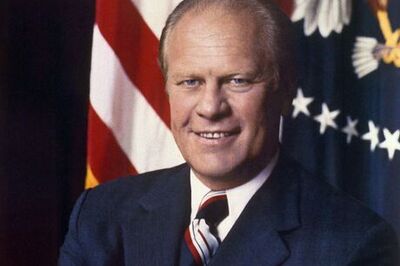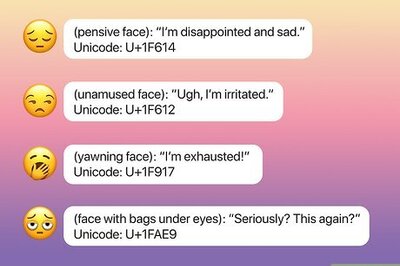
views
New Delhi: Pakistan on Tuesday dismissed the arguments made by India as only “flowery language” and “no substance” while reiterating that India’s demand for “at least” the acquittal or return of Commander Jadhav was “outlandish.”
Khawar Qureshi, appearing for Pakistan, said he had appeared for India in the past, but did not agree with India’s case in this regard.
On Monday, India, through senior counsel Harish Salve, had said the trial of its citizen Kulbhushan Jadhav by a Pakistani military court "hopelessly failed" to satisfy even the minimum standards of due process and requested the International Court of Justice to declare it “unlawful”.
On Tuesday, Qureshi, the English Queen’s counsel, argued that India had to first prove that Jadhav was an Indian national and that it still had not done so.
“When did Jadhav retire and at what age? What evidence is there that Jadhav retired from the armed forces? Why was he in possession of an authentic Indian passport with a cover name?” said Qureshi, adding Jadhav had confessed that he was a serving officer in the Indian Navy who was due to retire in 2022.
Stating that the nationality issue was never established, Pakistan said Jadhav’s passport as recovered from Iran was “authenticated by expert David Westgate and was used at least on 17 occasions by Jadhav.”
Qureshi demanded that the Indian government provide his real passport to establish his identity and asked if India
had granted immunity to Jadhav from impersonation which is a crime under the Indian Passports Act.
“India was required to prove Jadhav's nationality to get him diplomatic protection as was held in the Avena case,” Qureshi said.
Salve had argued “no credible evidence" was provided by Pakistan to show his involvement in any act of terrorism and Jadhav's purported confession clearly appeared to be “coerced”.
"There is no manner of doubt that Pakistan was using this as a propaganda tool. Pakistan was bound to grant consular access without delay," Salve said.
However, Qureshi said there were “distortions in India’s filings”. “We tried to give India every opportunity to correct these distortions. You can’t dismiss the truth,” he added.
Qureshi said India's demand for at least acquittal release and return is “outlandish”.
“India shamelessly mystery presented the conclusions of the joint report of the distinguished military law experts and was extremely late in the day to deflect criticism by saying a typo was involved in one respect. India has failed to answer serious questions which could of course be exculpatory or implicate India more broadly,” Qureshi said.
One of the other aspects of Qureshi’s arguments was the reliance placed on media reports and the statement of National Security Advisor Ajit Doval.
Qureshi referred to publications in the India media where journalists had questioned the Indian government’s move seeking access to Jadhav to check why he had a Muslim cover name for the passport.
He also cited Doval’s statement made in 2014 which “was published without retraction” where he reportedly said (referring to Pakistan), “If you know the tricks, we know the tricks better than you.”
Jadhav was allowed to meet his parents and wife in Pakistan which the country had displayed as an act in accordance with international law.
However, soon after the meeting, it was reported that Jadhav was “not looking well when his family met him”, but this was too dismissed by Qureshi.
"I do wish deputy high commissioner JP Singh well for his future as a fantasy fiction writer," Qureshi said regarding claims of Jadhav not looking well.
“There's a lot of flowery language in India's pleadings, but not much by way of substance,” he said.
Qureshi also dismissed India's claims that Pakistan did not have an independent appellate procedure. “The high court of Peshawar set aside more than 70 convictions made by military courts,” he argued.
“The main premise of this case lies in the confession by Jadhav before a judicial magistrate. Pakistan convicted Jadhav under Section 3 of the Official Secrets Act for terrorist activities in 2014. India has glossed over these matters,” Qureshi added.
On Monday, the top UN court began a four-day public hearing in the case of Jadhav, 48, who was sentenced to death by a Pakistani military court on charges of espionage.
India, during the first day of the hearing, based its case on two broad issues — breach of Vienna Convention on consular access and the process of resolution.




















Comments
0 comment